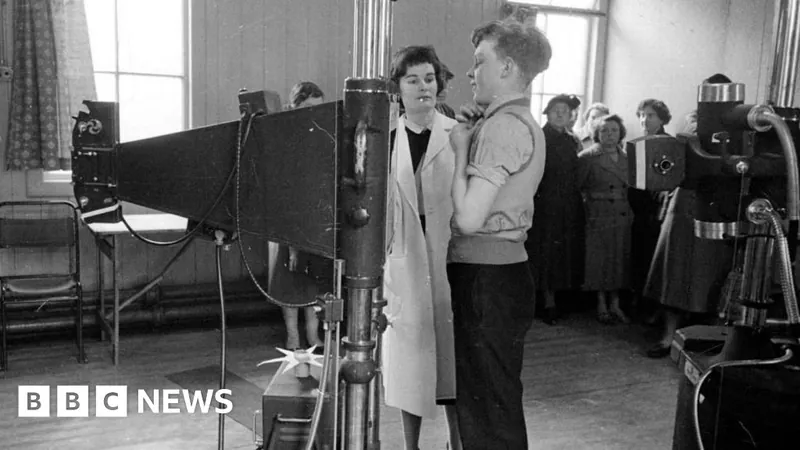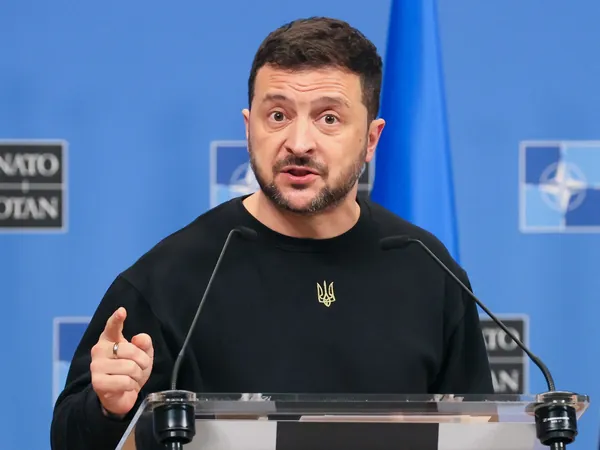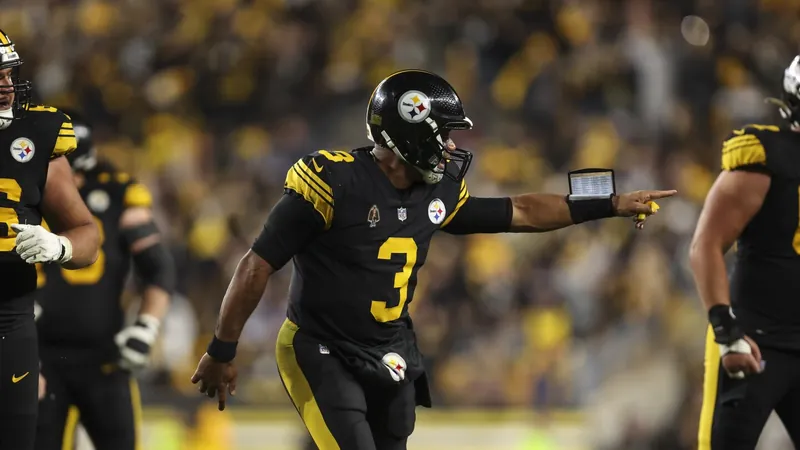
How Cigarettes, Chickens, and Chocolates Helped Combat a TB Epidemic in Glasgow
2024-11-06
Author: Lok
Introduction
In a remarkable public health initiative, Glasgow tackled a devastating tuberculosis (TB) epidemic in 1957, a time when the city was grappling with the highest death rate from TB in Europe. Amidst the challenges of post-war poverty, health officials launched an ambitious "X-ray now" mass-screening campaign. Over a span of just five weeks, more than 700,000 residents were screened, making it one of the largest public health campaigns seen at the time.
Community Involvement
The campaign relied heavily on community participation, with 12,000 dedicated volunteers mobilizing nearly three-quarters of Glasgow's population to get tested. To encourage participation, health authorities incentivized the initiative with an array of prizes, ranging from TVs and holidays to more unconventional offerings like cigarettes, chickens, and chocolates. This creative approach not only drew people in but also promoted a sense of community involvement.
Impact and Results
The results of this extensive screening were staggering—2,369 individuals were diagnosed and treated for TB. A subsequent study from the University of Glasgow revealed that the program's success had far-reaching implications; it prevented an estimated 4,599 future cases of tuberculosis over the next five years, effectively saving countless lives in the process.
Expert Opinions
Professor Peter MacPherson, a prominent global public health expert from the University of Glasgow, noted the program's historical significance. He emphasized that the rapid screening effectively doubled the detection rate of TB cases, a crucial factor in controlling the spread of the disease. "This initiative was unparalleled in its scale and impact," he remarked, indicating how community solidarity played a vital role.
Support and Awareness
The screening effort was supported by 37 mobile X-ray units and radiographers from various cities across the UK. A publicity campaign included loudspeakers, illuminated trams, airplane banners, and even specially commissioned campaign songs during local football matches that spread the word about the initiative. Participants were also awarded badges, and those who wore them were randomly selected to receive small gifts, further motivating the community.
Lessons for Today
While some prizes, like cigarettes, might seem outdated today, the sheer volume of volunteer effort during this campaign was remarkable. Thousands of citizens came together, knocking on doors, and encouraging their neighbors to seek screenings.
Ongoing Global Challenge
Currently, areas such as Africa, Asia, and South America continue to face high rates of TB largely due to poverty, inadequate healthcare systems, and overcrowding. The lessons learned from Glasgow's historical experience can provide valuable insights into modern-day TB eradication efforts.
Conclusion
Tuberculosis remains a critical global health issue, with the World Health Organization estimating close to 11 million new cases worldwide in the past year alone, leading to over a million deaths. Symptoms include a persistent cough lasting over three weeks, weight loss, night sweats, and fever. The Glasgow initiative serves as a reminder of how community engagement and innovative public health strategies can make a significant difference, emphasizing the need for proactive and compassionate healthcare solutions in today's world.
As the global fight against TB continues, the Glasgow story stands as a beacon of hope and a model for mobilizing communities to combat health crises effectively.



 Brasil (PT)
Brasil (PT)
 Canada (EN)
Canada (EN)
 Chile (ES)
Chile (ES)
 España (ES)
España (ES)
 France (FR)
France (FR)
 Hong Kong (EN)
Hong Kong (EN)
 Italia (IT)
Italia (IT)
 日本 (JA)
日本 (JA)
 Magyarország (HU)
Magyarország (HU)
 Norge (NO)
Norge (NO)
 Polska (PL)
Polska (PL)
 Schweiz (DE)
Schweiz (DE)
 Singapore (EN)
Singapore (EN)
 Sverige (SV)
Sverige (SV)
 Suomi (FI)
Suomi (FI)
 Türkiye (TR)
Türkiye (TR)